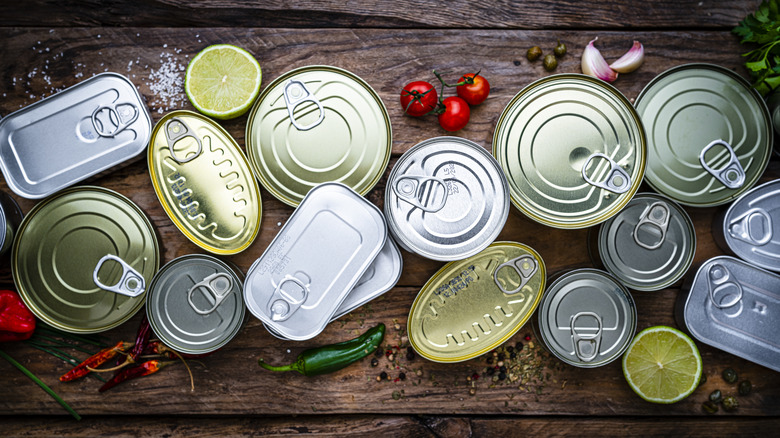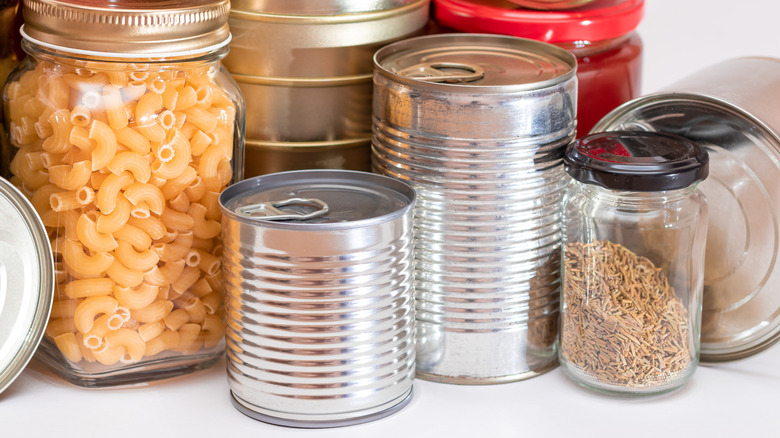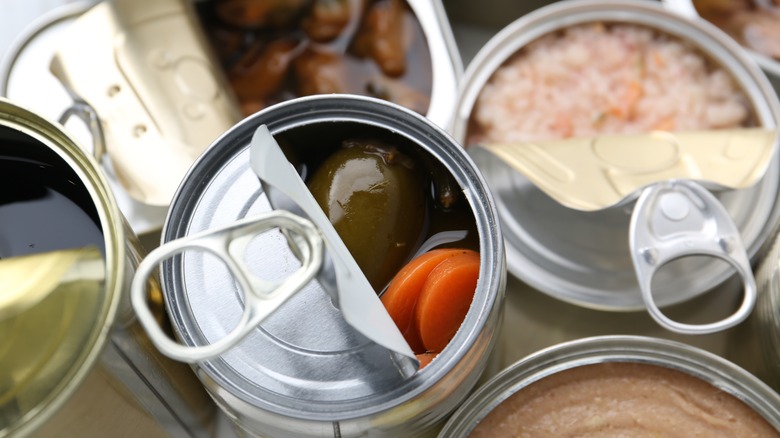Why You Shouldn't Store Unopened Canned Goods In The Refrigerator
Thanks to canned food, we no longer have to wait for certain vegetables to be in season or go through the long and involved preservation process. Instead, we can pop open a lid and pour the contents out — or even eat some foods straight from the can. While these cans are resilient, they do need to be stored properly. That does not include refrigerating them long-term, as the moisture that fridges sometimes collect can cause rusting or even deterioration of the metal.
Refrigerators do, in fact, work to remove moisture from their interior environments, but we introduce humidity every time we open the door. And if you open your fridge frequently — or stand there with the door open while you peruse the contents, deciding what to have for lunch (hey, no judgment) — that is a lot of warm air for the appliance to remove. Sometimes, it can be too much, and condensation forms.
Moisture is the enemy of metal. If you store your cans in the fridge for a while, that condensation can slowly rust or corrode the aluminum or tin. This is bad because tiny entry points for bacteria can form, leading to potential food spoilage. If you want canned food to be cold for a specific dish, however, it is safe to leave it in the fridge short-term.
So how should you store unopened canned goods?
While reading your can labels for ingredients or sodium content, you might notice they also recommend storing them in a cool, dry place. That can mean different things to different households, but in general, a pantry — away from vents, heat-generating appliances (your fridge, stove, or oven), and direct sunlight — is best. Avoid keeping cans on your counters, especially if you have a lot of natural light streaming in, or in your basement if it is damp.
It is also important to keep your cans on shelves rather than letting them sit on the floor. If you can invest in wire shelving, even better — it allows air to circulate around the cans, preventing moisture buildup that can lead to rust or corrosion. When adding cans to your existing collection, be sure to rotate them so that the oldest cans move to the front and the newest to the back — following the FIFO (First In, First Out) rule that professional chefs use. This ensures you do not end up with a forgotten can stuck in the back of your pantry for years.
Can you keep opened cans of food in the fridge?
According to the USDA, it is safe to store leftover canned goods in the can and place them in your refrigerator, as long as you plan to use them within a few days (hooray for not having to dirty another container). You will want to cover the opening as best you can to prevent outside bacteria from getting in and spoiling the food. You can do this by securing plastic wrap on top with a rubber band, or even placing the entire can in a plastic bag.
However, while this method is not a danger to your health, it can affect the canned food's freshness (and leave something to be desired in terms of taste). Plus, plastic wrap or aluminum foil is not airtight. To maintain the best quality for your opened canned goods, transfer them to an airtight container made of glass or plastic with a secure lid.



